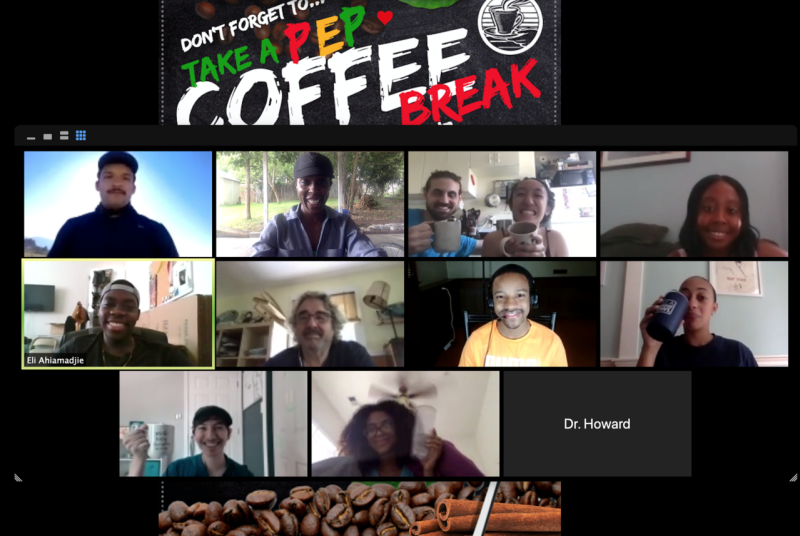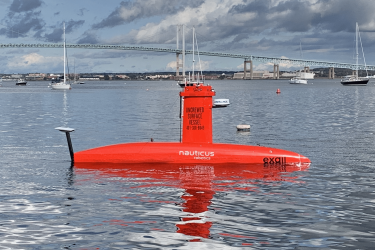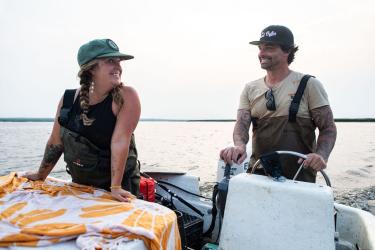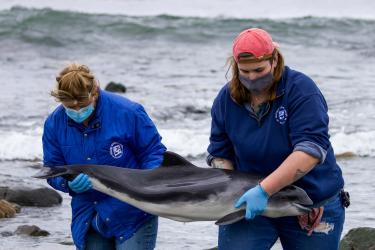Usually, they’d be traveling to Cape Cod in late May to start their summer internship in Woods Hole. Instead, students in this year’s Partnership Education Program (PEP) class began their experience online. A virtual orientation session on May 29 introduced the students to each other, to the program, to the Woods Hole scientific institutions, and to their scientific mentors. Students come from large research universities and small liberal arts colleges, and from a variety of ethnic and cultural backgrounds. Their mentors are members of the scientific staffs of the six member institutions.
A project of the Woods Hole Diversity Initiative, PEP was founded in 2004 by the six scientific institutions in Woods Hole. Its goal is to attract and retain a more diverse workforce, one that reflects the changing demographics of the nation and the world. The first PEP class was held in 2009.
“When it became clear in mid-April that the COVID-19 pandemic would make a residency program in 2020 unlikely, the PEP staff thought hard about whether to cancel, as many other summer programs have, or whether to take the risk of trying to figure out how to run a non-residency program,” said George Liles, director of the Northeast Fisheries Science Center's Academic Programs Office and PEP director.
After talking with other program leaders and with PEP alumni, organizers decided that the program had to continue in 2020. “The students we serve do not have the luxury of putting their education and career on hold for the year or more it will take for the pandemic to pass,” said Liles. “Likewise, the Woods Hole community does not have the luxury of putting aside its efforts to learn how to become a more inclusive and diverse community.”
A Program Changed to Meet an Unexpected Challenge
Each year PEP staff travel to campuses and conferences during the winter months to meet and talk with students. These students are from minority groups that are under-represented in marine and environmental sciences. The program recruits college sophomores and juniors who have had some course work in those sciences. It provides housing, a food allowance, a stipend, and intensive mentoring and career-building opportunities.
This year’s pandemic changed nearly every aspect of the program.
“The change to a virtual, remote learning program required considerable rethinking of expenses, although the costs are largely unaffected by the COVID 19 situation,” said Liles, PEP director. “This year we do not have expenses for student travel, housing, and food, or for the 5-day research cruise aboard the SS/V Cramer. Instead, we have increased expenses on the staff side. We established a number of new positions to quickly transition to a virtual program that provides students the support they will need for their course work, research projects, and career building activities.”
PEP students take a four-credit course focused on global climate change and taught by members of the Woods Hole science community and PEP alumni. The course is offered through the program’s academic partner, University of Maryland Eastern Shore. Typically the course is offered in Woods Hole. The 2020 course was designed as an interactive, activity-based course under the leadership of Benjamin Harden, a Sea Education Association scientist.
Students have been matched with their research mentors at one of the six partner institutions. Many of the mentors are new to PEP and are working with two PEP students, providing an opportunity for students to work closely with a peer. Students began work on their projects in early June. They will work full-time in July and August on their research under the guidance of their research mentor. On August 7, each student will present their research results in an online public presentation.
Students in the PEP class of 2020 are studying at:
- Delaware State University
- Howard University
- Humboldt State University
- New Mexico Institute of Mining and Technology
- New Mexico State University
- North Carolina Central University
- Oklahoma State University
- Savannah State University
- University of Massachusetts Boston
- University of North Carolina Pembroke
- University of Texas El Paso
- Wellesley College
- Wheaton College.
Expanded PEP Staff Includes Alumni
Many PEP alumni have gone on to graduate school, and participated in other programs offered by PEP institutions. Others have found employment in the marine and environmental sciences field, including positions at Woods Hole science institutions. Some have returned to PEP in a different capacity.
Liles and course director Ben Harden of the Sea Education Association are joined this year by PEP coordinator Joniqua Howard, who served in that capacity in 2010. Paulinus Chigbu of the University of Maryland Eastern Shore represents the program’s academic partner.
Former PEP student André Price (2012) at the Northeast Fisheries Science Center serves as course assistant. PEP alumna Kelly Luis (2015) at the University of Massachusetts Boston is career development coordinator. Luis Valentin Alvarado (PEP 2016) of the University of California Berkeley is the computational advisor, and Lindee Taha of Sea Education Association serves as IT Support.
Ambrose Jearld, founding director of PEP, retired from the Northeast Fisheries Science Center in 2016. He continues to act as a recruiter and mentor for the program, and serves as senior advisor. Paul Joyce of Sea Education Association, Hauke Kite-Powell from Woods Hole Oceanographic Institution, and 2011-2015 PEP coordinator Onjalé Scott Price, now with Mizar Imaging, serve as advisors.
Participating Woods Hole scientific institutions in PEP are:
- Marine Biological Laboratory
- NOAA’s Northeast Fisheries Science Center
- Sea Education Association
- United States Geological Survey Coastal and Marine Science Center
- Woods Hole Oceanographic Institution
- Woods Hole Research Center.
For more information, contact Shelley Dawicki.




